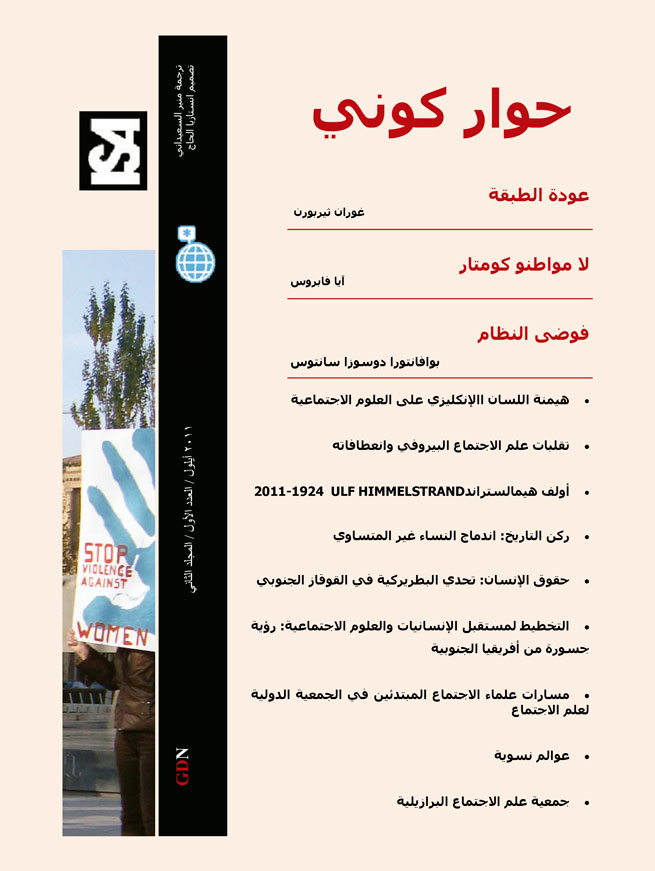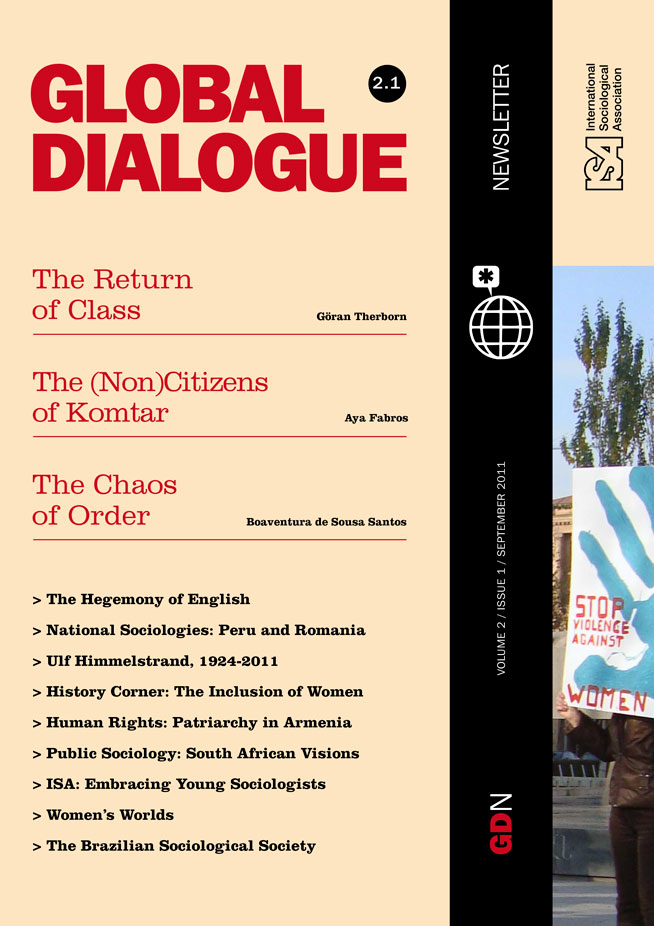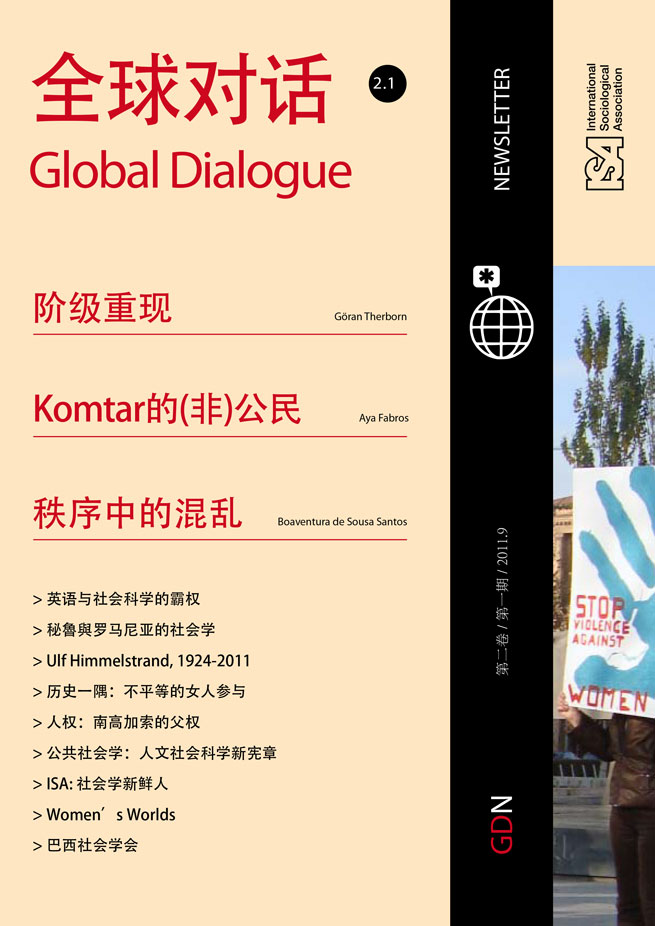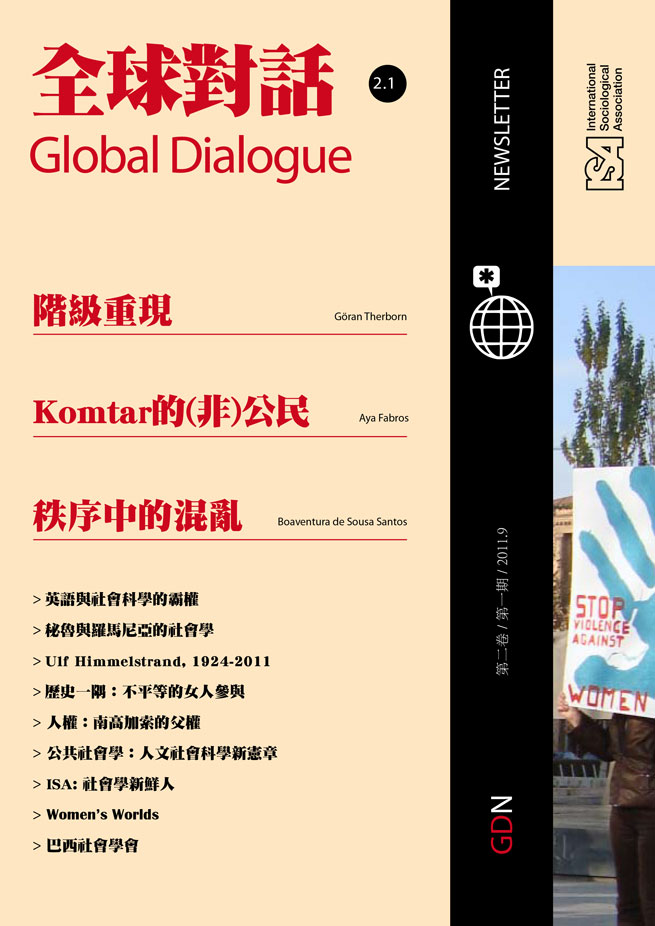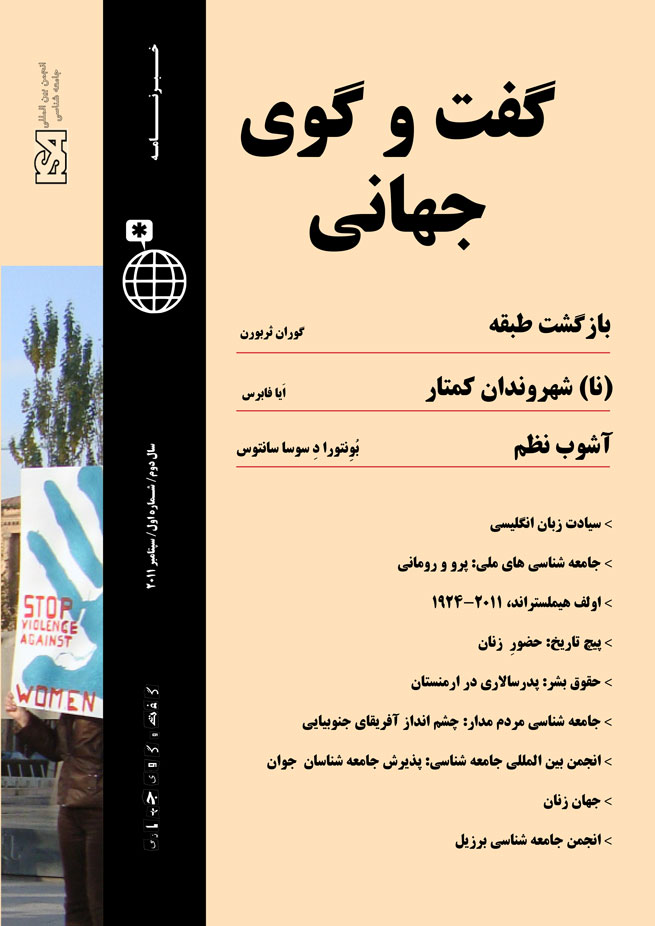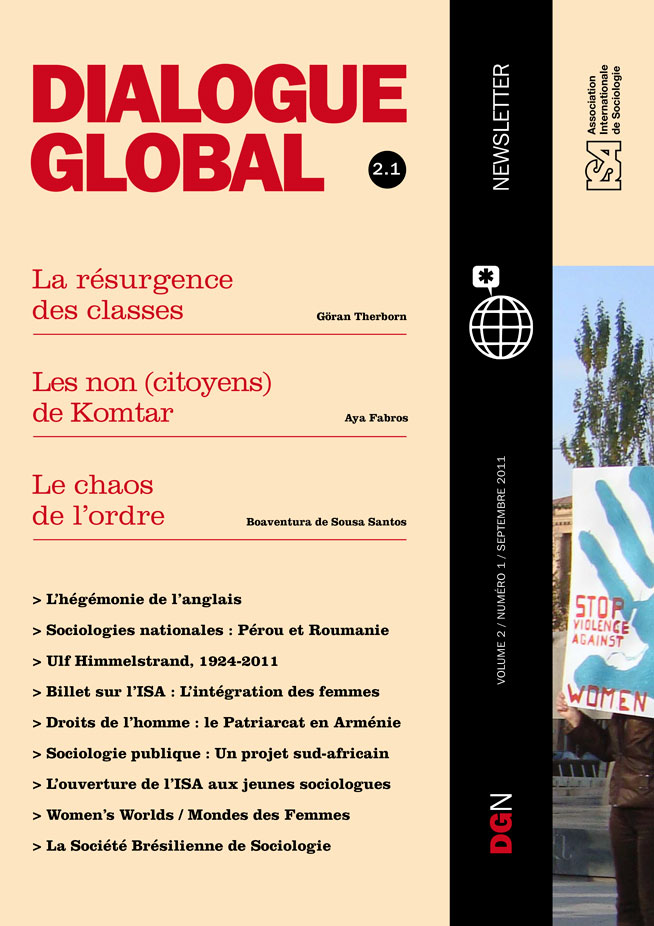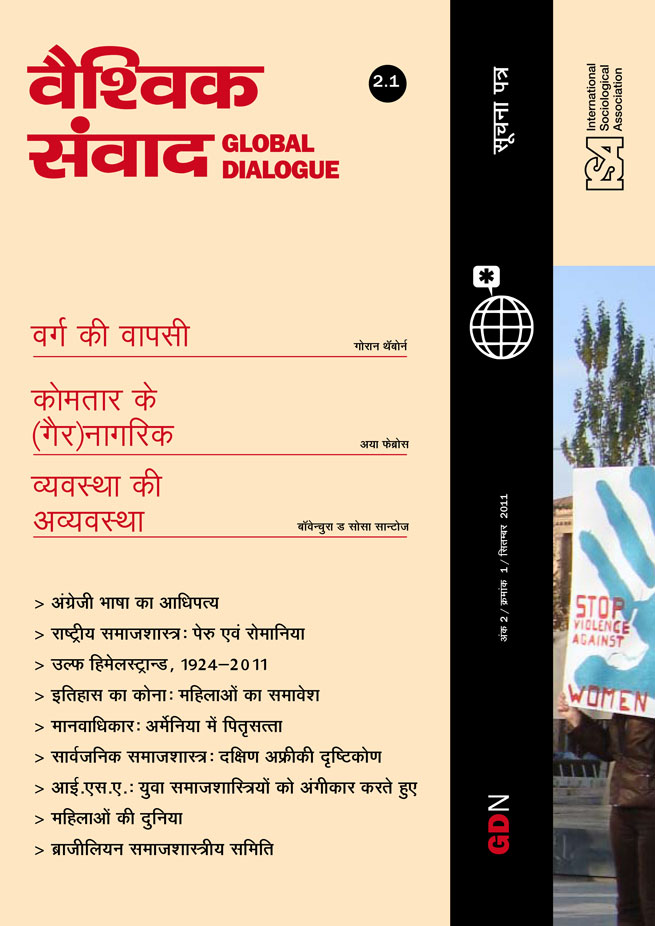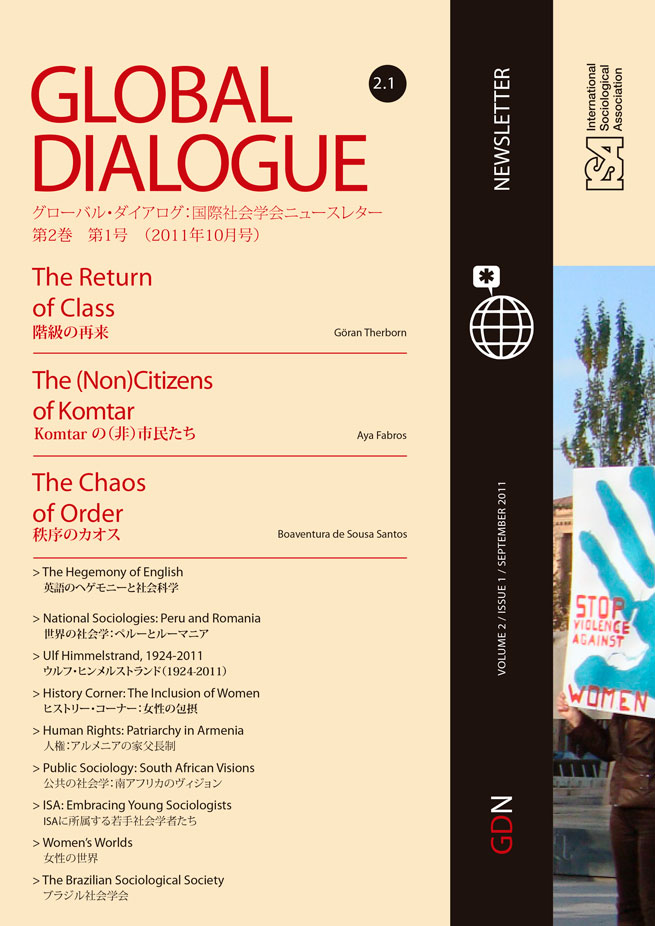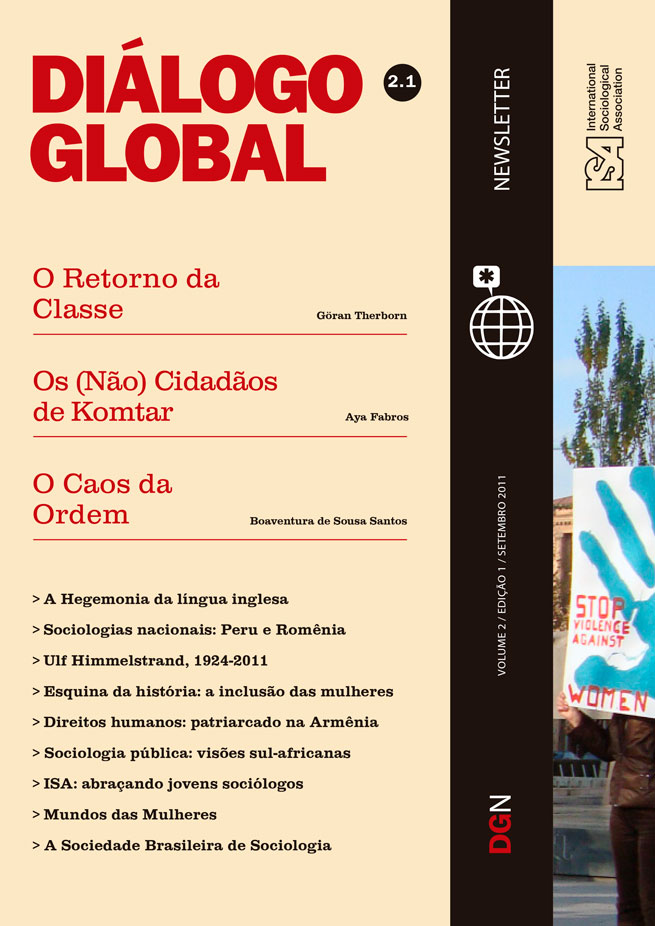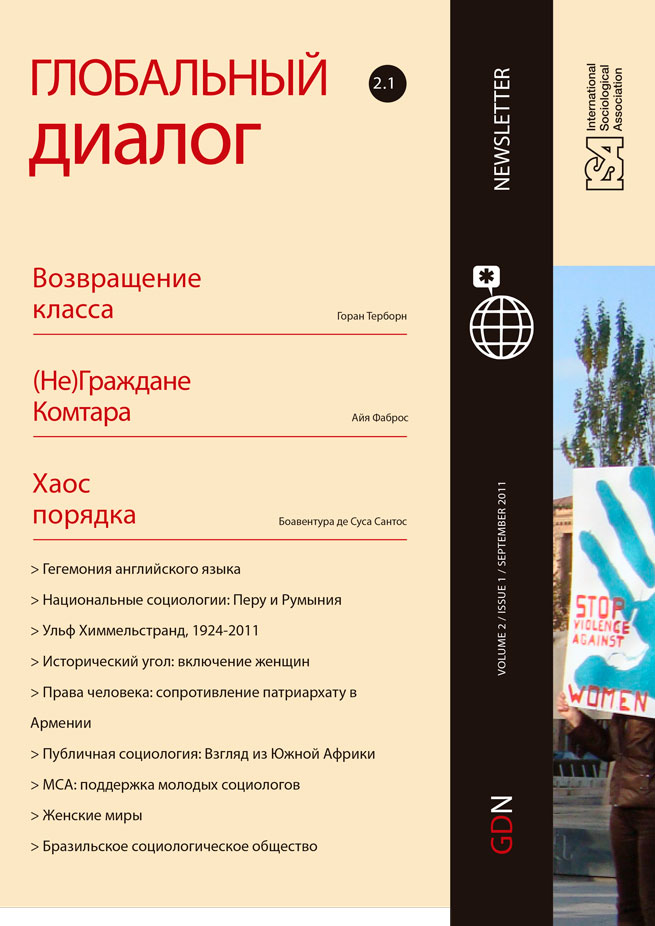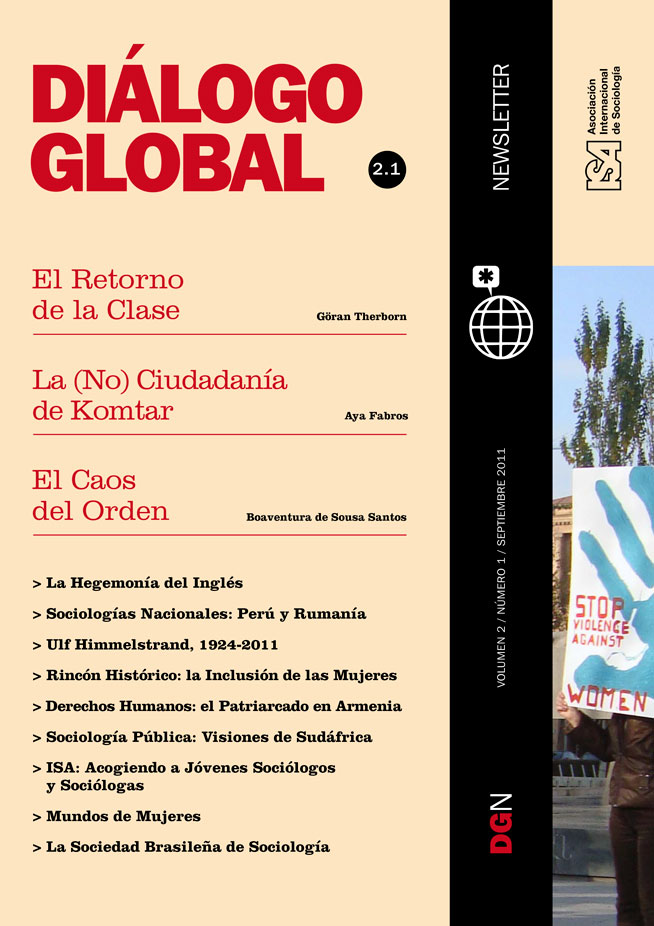Read more about National Sociologies

The Twists and Turns of Peruvian Sociology
by Nicolás Lynch
September 30, 2011
If one thinks of Michael Burawoy’s classification into professional, critical, policy and public sociology, one may say that sociology in Romania is strong on policy sociology and improving (read weaker) on the other three types. Sociology in Romania was first taught at the end of the 19th century. It evolved in the interwar period into the so-called Bucharest Sociological School (interdisciplinary and mainly ethnographic). A World Congress of Sociology, supposed to take place in Bucharest, was cancelled due to the beginning of World War II. In 1948, sociology was prohibited, re-established in 1966 and re-prohibited in 1977. Since 1989, several sociology departments have emerged and thousands of students have obtained BA, MA or PhD degrees in sociology.
During the last two decades, Romanian sociology generated three ministers of labor, a prime minister, two speakers of the House of Deputies and many MPs and high-level political advisors. Many political analysts, journalists, survey companies, top-level managers have contributed to a positive public perception of the sociology profession in Romania. Despite that, the relinking of Romanian sociology to international sociology has not been a priority until recently. Until the 2010 ISA World Congress in Gothenburg (attended by 30+ sociologists from Romania) Romania used to be underrepresented in the international events. This seems to be part of a broader tendency -- according to the documents counted by one bibliometric service (SCImago), the contribution of Romanian social sciences increased from 0.02% of the global production in 1996, to 0.15% in 2008 and to 0.44% in 2010 (http://www.scimagojr.com/countrysearch.php?area=3300&country=RO&w=).
Aside from the occasional presence of sociologists from Romania in some top international sociological journals (e.g. Current Sociology and Social Forces), another trend has been the creation of new, scholarly peer-reviewed journals, whose scope is international. One example is International Review of Social Research (www.irsr.eu), whose forthcoming special issues will deal with environmental sociology, material culture and consumption in the Global South, social economy, lifestyle, and tourism. It gathers contributions from such prominent social thinkers as Jean-Claude Kaufmann, Michael Redclift, and Zygmunt Bauman and anthropologists Richard Handler and Daniel Miller.
In 2008, the Association of Romanian Sociologists, a large group of sociologists composed of academic and applied sociologists from universities and private research institutes, set up a new professional organization, the Romanian Sociological Society (RSS) (http://societateasociologilor.ro/en). It now counts more than 400 members. The first RSS International Conference, held in Cluj-Napoca in 2010 and called Remaking the Social: New Risks and Solidarities (http://cluj2010.wordpress.com/) had about 200 presentations. The most frequent topics concerned migration, organizations, urban issues, social problems and policy, social psychology, but there was also much interest in the study of social values, survey methodology and post-socialist transformations.
The 2nd International Conference, called Beyond Globalization?, will be held in June 2012, with submissions starting in mid-September 2011. For more details please visit the website http://www.societateasociologilor.ro/en/conferences/conference2012. The conference will attempt to take stock of the end of the historical cycle that has changed sociology in important ways during the last 30 years. Taking into account the epochal events of the last few years (such as 9/11 and the global financial crisis), the conference seeks to explore which trends of neoliberalism and globalization will fade away and which will persist.
Marian Preda and Liviu Chelcea, University of Bucharest, Romania
This issue is not available yet in this language.
Request to be notified when the issue is available in your language.
If you prefer, you can access previous issues available in your language:
